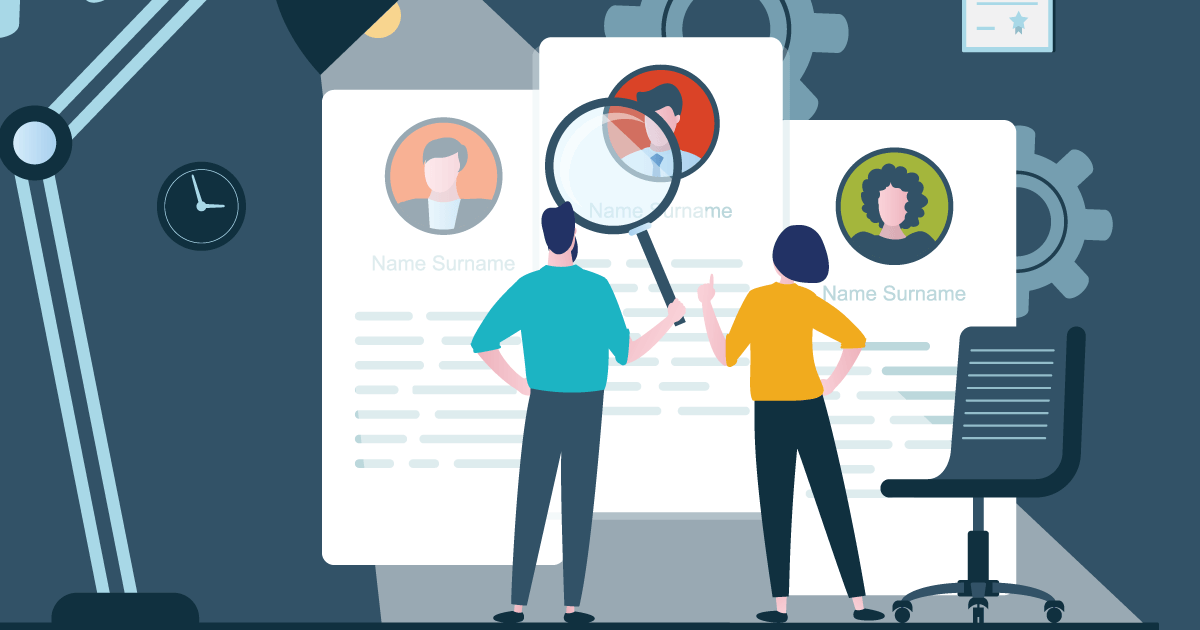
That’s why employers do background checks before hiring
22/07/2020
Whether you want to get a job in a low-key local company or a major international corporation, a background check is what to expect as an important part of the recruitment process. Since a survey conducted by CareerBuilder found that 75% of human resources managers uncovered ‘sugar-coated’ or even outright false data on applicants’ CVs, it became a security or workplace safety measure. At the end of the day, signing on a wrong person could have huge implications for a company and drag it into costly litigation and/or compensation. Plus, it’s an issue of the company’s image and organizational reputation.
Okay, we got it - there’s no way to hide from it, but what exactly is a background check, and will they finally learn about you cheating it off in 8th grade? Not really, relax. While pre-employment screening does involve educational and employment history checks, usually it’s limited to verifying the authenticity of diplomas, certificates, and work history. Also, employers usually conduct some financial and criminal records (since in some countries ex-convicts are banned from working with the elderly, disabled, and underage), and other information related to the position in question.
Since over 2/3 of employers conduct pre-employment background checks before hiring (using their own resources or with help from third-party services), it is important to know what goes hand in hand with this process.
Background checks: are they even legally allowed in the first place?
In many Western countries, they are not just allowed, they are mandatory by law. In the United Kingdom, employers are fined (£20,000) if they don’t do a proper pre-employment check. However, in the United States, background checks are an important part of the hiring process, employers must obtain applicants’ consent and must be in accordance with certain federal legislations, guaranteeing applicants will not be discriminated against.
Is there any reason for doing reference checks?
Reference checks provide crucial data on a candidate's past professional performance, job competence, and their possible fit with the company culture. And former employers are the best source of this kind of information.
Many candidates may appear exceptional on paper and brilliant on a job interview, but by speaking with a neutral third party, you will gain valuable details about a candidate's strengths and weaknesses as to whether they are suitable for the position advertised.
Who has access to the information from my background check?
While employers do their best to protect their business from security risks, candidates want to know how their confidential information is treated, and who has access to it. Most countries have laws protecting background checks data from falling into wrong hands. In their turn, companies limit access to the data to the staff trained to handle the confidential reports. This means come-and-go people are not allowed to store, handle, and use personal information, and under any circumstances, they must not take part in the background check process.
Job applicants, when asked for a background check, have certain rights too. Sure enough, you can’t do your own check or know beforehand what your potential employer what they ‘dug into’ you, but you can ask to have access to the report. Moreover, if the report finds something that would bar you from getting the job, the employer must inform you about it. With the final decision on hand, it’s up to you to decide if there was any form of discrimination involved, or if the data in the report is inaccurate. If unfortunately, you smell any kind of foul play, get a lawyer.
If the information is available online, that doesn’t mean employers can check and collect it whenever they feel like it
When the employer collects data related to an application file, they, therefore, collect personal information. According to the current state of labor law in most developed countries, there is no presumption that information is public and can be collected without requiring consent simply because it is available on the Web.
In addition, certain foreign jurisdictions have specifically prohibited employers from requiring candidates to give access to their profiles on social media, if these are not public, or from requiring the disclosure of their passwords to their social media accounts during the hiring process.
Just so you know...
Anyway, it is advisable for each candidate to focus on their privacy in social networks and on the Internet in general and to ensure that their professional career is consistent both on paper and in reality. But it still should be pointed out that 70% of employers would check candidates’ CVs as the last part of the hiring process, because this is a time-consuming and very tedious thing to do. In the society that tends more and more to transparency and thanks to digitalization, however, these practices could evolve and the candidates will have to adapt to it.
